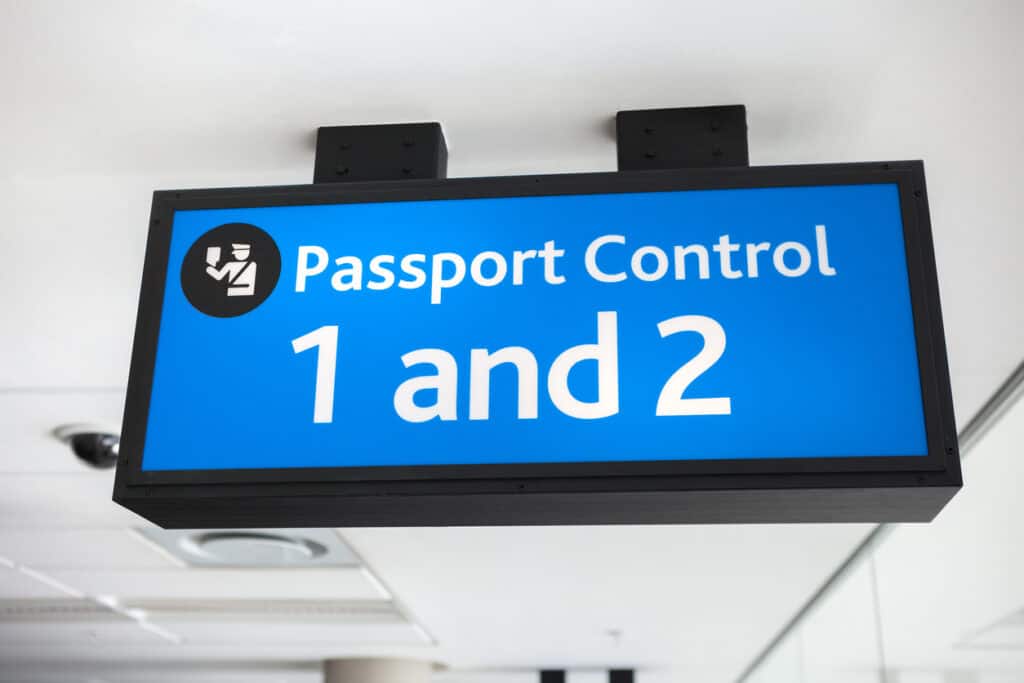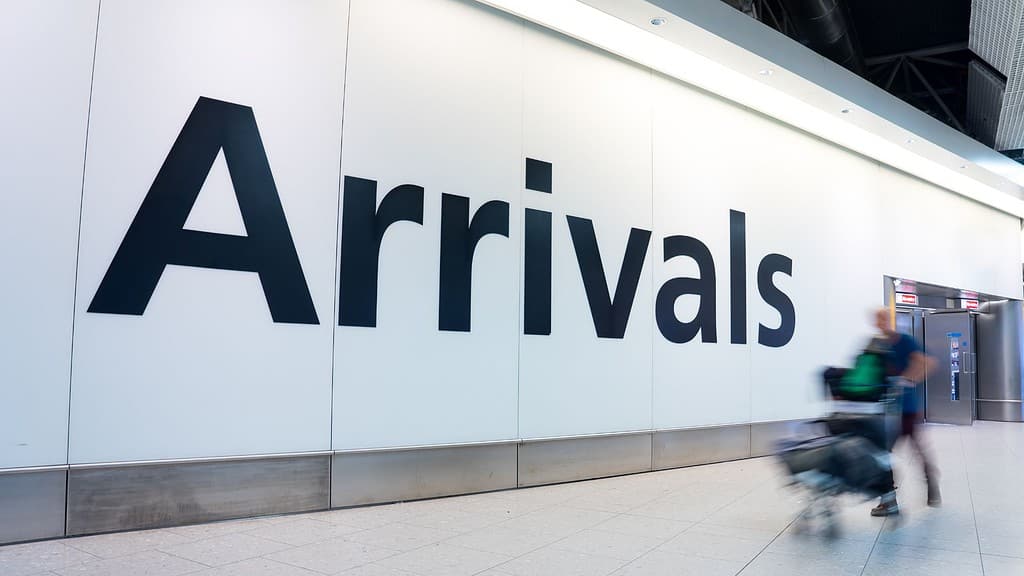An unattributed summary of the roundtable co-hosted by Vialto Partners and the Campaign for Science and Engineering on Monday 31st October 2022.
The role of the immigration system in supporting STEM talent
22 Nov 2022
This is part of an ongoing piece of work by CaSE investigating the skills needs of an R&D intensive UK.
This roundtable was convened to discuss the role of the UK immigration system in supporting STEM talent, and the role of the UK Government in supporting this. The event brought together stakeholders from across the research and innovation landscape.
The roundtable was attended by a variety of stakeholders from across universities, UK-wide learned societies and officials from the Cabinet Office and UKRI. This unattributed summary does not represent policy positions of either Vialto Partners or CaSE but will form part of CaSE’s ongoing programme of work on education and skills, ultimately enhancing the environment for science and engineering in the UK.
Summary of the main benefits of international talent and challenges with the UK immigration system for supporting STEM talent
| Benefits | Challenges |
| – To recruit the best research talent – To fill crucial skills gaps, including R&D but also other relevant skills (e.g. technical skills) – To increase diversity, through bringing in different viewpoints and cultural approaches – To enable international collaboration, which is necessary for many areas of research, e.g. cancer research | – The cost of obtaining a UK visa for individuals and their families – The burden of recruiting talent for UK institutions (e.g. in terms of resources required and lack of clarity and guidance) – Brexit-related challenges around international collaboration, e.g. the ongoing lack of association to the Horizon Europe funding programme – The complexity of the UK immigration system, including the lack of a joined-up approach and overarching strategy |
Vialto Partners Foreword
Vialto highlighted the recent policy context around immigration, with a focus on making the UK more attractive. They outlined the focus of their recent work on immigration as a mechanism to attract and retain the best talent to the UK. There have been immigrations challenges during and after the COVID-19 pandemic, including around attracting and retaining talent in the education sector, with STEM an important part of this. This includes thinking about how to make immigration routes more attractive to target future skill sets but also removing barriers such as cost. They stressed the importance of engaging with universities to retain graduate talent. They also suggested that mechanisms such as settlement and route to settlement can play an important role in retaining talent, and the UK Government should look at how they use this.
Furthermore, they suggested that the government should consider regular updating of Shortage Occupation lists and add value to Shortage Occupation roles by fast tracking these applications and/or charging less visa fee so that these roles attract STEM talent. The government should be open to discuss new visa options such as ‘digital nomad’ visas for STEM talent as these are currently being offered by some European countries.
CaSE Foreword
Professor Sarah Main opened the session, highlighting that this is an important moment to be discussing STEM talent. The UK Government has put R&D at the heart of its plans for growth; whilst significant changes in the immigration system have had time to begin to take effect. CaSE have looked at the issue of immigration over a number of years, and are now looking at this afresh as part of a new piece of work focusing on education and skills.
UKRI Foreword
UKRI introduced a report that they have just published on the global mobility of research personnel. The report aims to evidence why migration and mobility is of value, as well as the key barriers, enablers, and evidence gaps.
Some of the enablers identified included the following: the perception of the UK as open and international, and an attractive destination for postdoctoral researchers, and high quality infrastructure.
Some of the barriers identified included the following: a lack of visibility of what the UK has on offer, difficulty navigating available funding, and difficulty for families to move to the UK.
The report also identified several evidence gaps around: how UK immigration rules interact with international mobility, researchers who work in industry and the make up of the internationally mobile population e.g. around diversity.
Roundtable Summary
The value and benefits of immigration
A key point highlighted was that international recruitment is necessary to recruit the best research talent. Related to this, there was discussion around the effect of prestige, with talent from abroad helping to bring in additional talent through a ‘magnestism effect’. Publication evidence points to a circulatory movement of talent in the UK, with this circulatory pool of people often demonstrating higher productivity than those who are sedentary.
It was also stressed that immigration is necessary to bring in other relevant skills and fill crucial skills gaps. It was stressed that R&D requires an ecosystem of skills underpinning research, and in addition to R&D skills, international recruitment can help to bring in much needed technical skills (e.g. technical and support staff).
Another value of immigration is its role in increasing diversity, through bringing in different viewpoints and cultural approaches. This helps to make connections with different countries people are coming from. It was felt that home students gain a lot from being around international students through reciprocal learning, but the UK does not capitalize on this enough.
International collaboration is necessary for many areas of research e.g. cancer research. An example that was highlighted was the development of the Covid vaccine during the pandemic. The technology and ability to do that built off a long programme of work. The knowledge came together and massively benefitted the UK and the whole world (through sequences that went into global database).
Current challenges with the UK immigration system
A key challenge is the cost of obtaining a UK visa. In addition to visa fees, which may be covered by sponsor organisations or funding grants, there are upfront costs including the immigration health surcharge, which are typically not covered and which can be prohibitive. It is also costly to bring in families – while provisions are sometimes made for senior staff, this is often not the case for early career staff. This means it is often most costly for those least able to afford it.
The burden of recruiting talent is currently placed on UK institutions, which takes up time and money, particularly as navigating the system often requires knowledge and expertise. For example, an application for the Global Talent Visa takes more time than the skilled worker visa, and requires someone who is expert on the differences. As a result, those with less administrative capacity are failing to recruit.
Brexit has also led to challenges, particularly related to the ongoing lack of association to the Horizon Europe funding programme. The UK is competing with other countries for top talent – the loss of access to a prestigious funding programme makes the UK a less attractive destination for researchers looking to further their career, who may look to establish in other countries instead.
There are also challenges around obtaining Academic Technology Approval Scheme (ATAS) certificates, which can lead to delays in obtaining a visa both for students and visitors. The lack of guidance as well as resourcing issues within HEIs often leads to delays in processing. The delays also present particular issues for short term workers who don’t qualify as a ‘visitor’ and have to obtain a Temporary Worker visa. It was felt that the work required to obtain a Temporary Worker visa (which requires ATAS) is not commensurate to the length / value of the visit, which presents a significant barrier to doing short term research projects.
The UK Government has introduced a series of complex changes to the immigration system, which are often not linked together. This creates somewhat of a dissonance in the narrative – while the UK seeks to introduce the best talent, it is often hard to navigate the system. The Government should better set out the strategy through linking up the different elements to create a strong narrative without dissonance.
Future considerations
Cost is a major issue and it would be critical to review this in order for the UK to remain competitive.
There is a question around creating a welcoming environment for example through improving continuity. Settlement could be explored as a mechanism to retain talent.
It would be helpful to design a more flexible immigration system within a framework of security that enables R&D activities to thrive. There is a question around porosity – visas can lock researchers into the activities that are being sponsored for, which makes it difficult to change direction. Aspects that were discussed as part of this included:
- It would be beneficial to expand the provisions for short term work, including permitted paid engagement and short-term visas for short term collaborative research projects. The concept of a ‘digital nomad’ visa could be explored to stay competitive.
- It would be beneficial to develop clearer guidelines around ATAS applications to create a more consistent approach in how applications are assessed. While it is acknowledged that there are potential security risks in relation to R&D, there is a need for a certain degree of pragmatism.
Closing remarks and reflection
In conclusion, there are mixed perspectives within the R&I sector on the effectiveness of the immigration system. While the system appears to work well for larger businesses, for other parts of system (e.g. families, students and researchers) the narrative is more diluted and complex. The UK is competing for global talent and so needs to consider how to make the UK an attractive destination. In general, the immigration process could be more streamlined and look to develop a more welcoming approach. The UK Government could consider several areas to make the UK more attractive for talent and widen the shortage occupation list. For instance through addressing the cost of visas, refining permissible activities within visas and potentially exploring the role of settlement as a route to retain talent.
This event summary is taken from the roundtable held on 31st October 2022, co-organised by Vialto Partners and the Campaign for Science and Engineering (CaSE).
This unattributed summary does not represent policy positions of either Vialto Partners or CaSE but will form part of our ongoing programme of work into Education and Skills, ultimately enhancing the environment for science and engineering in the UK.
The role of the immigration system in supporting STEM talent
Download Event SummaryRelated resources

A week on from the publication, Policy Manager Camilla d’Angelo takes a look at some of the questions that remain to be resolved and what to expect next for the Immigration White Paper.

Policy Manager Camilla d’Angelo takes a look at what the Immigration White Paper means for attracting international R&D talent to the UK.

In advance of the forthcoming Immigration White Paper, CaSE and 35 other organisations have written to select Westminster Parliamentarians.

This briefing summarises attitudes to immigration, international students and researchers, and their impact on UK R&D. It is based on evidence from a nationally representative survey of 4,100 UK adults in June 2024 and two focus groups in December 2024.